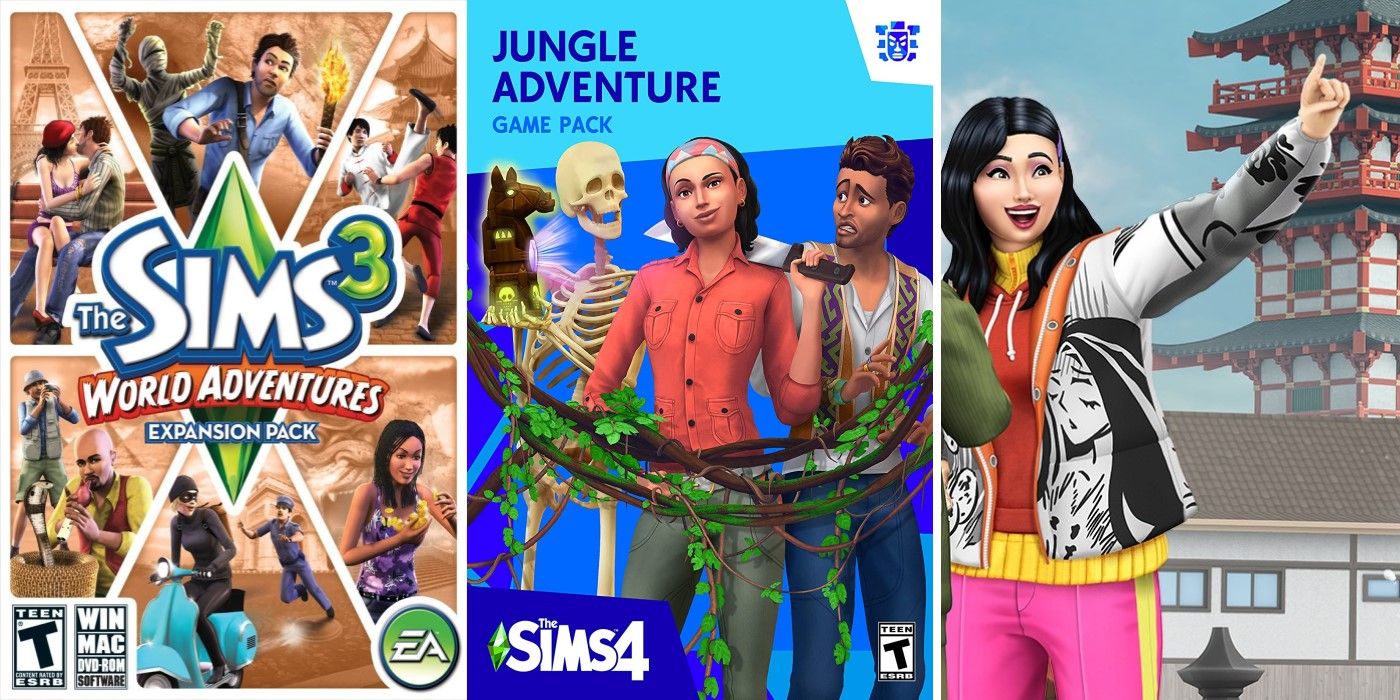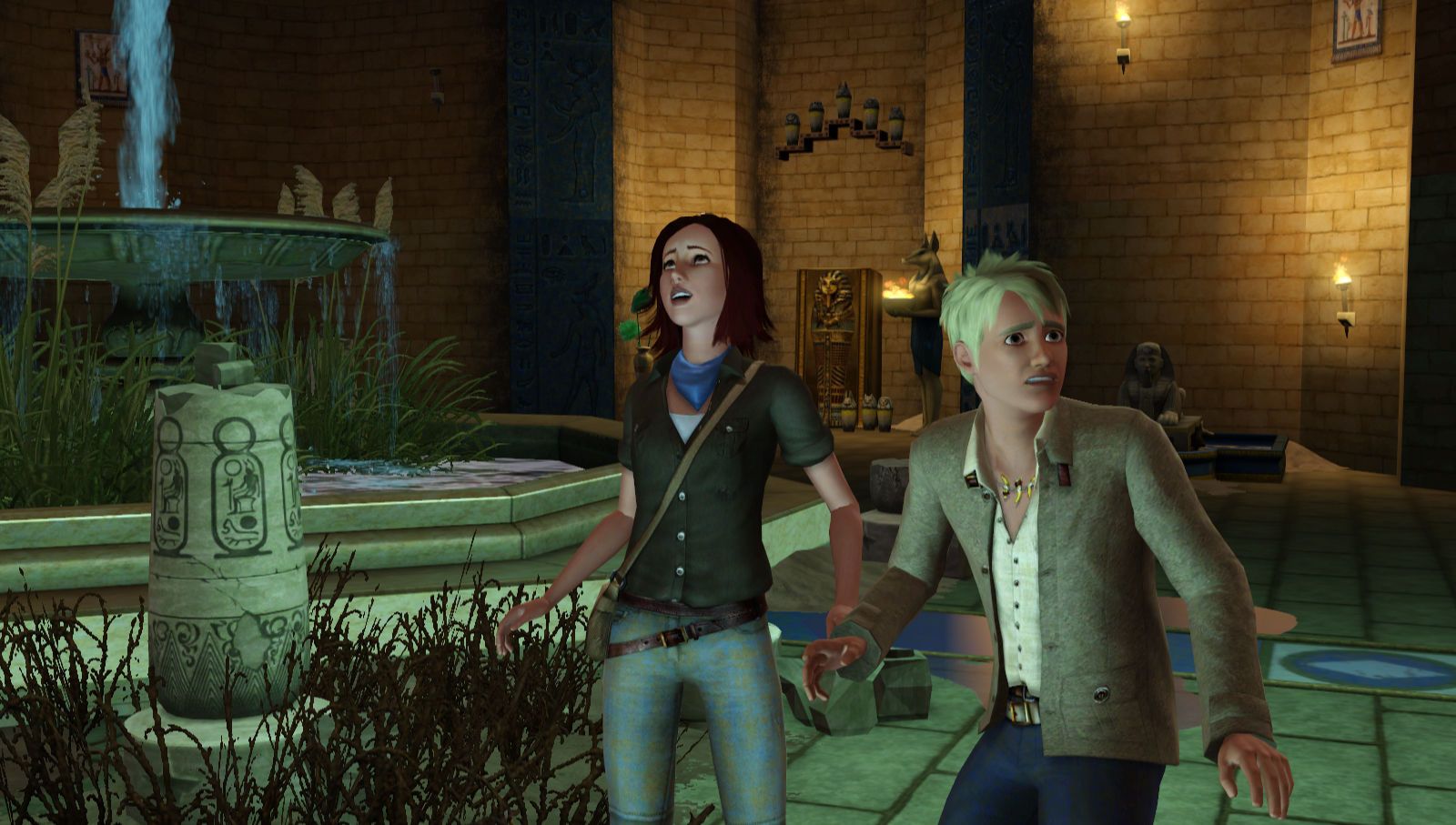EA’s The Sims franchise has been around for over 20 years now, hitting a major milestone in March of this year when the latest iteration of the series, The Sims 4, reached 10 million players overall. While the series hasn’t been around or involved long enough to be inducted into the annals of video game history as “one of the longest running franchises,” 20 years is still a remarkable achievement.
However, The Sims franchise has not always been culturally sensitive and has had a few missteps in the past. Some issues EA has taken care to correct, and for others, it just keeps making the same mistakes. It seems the developer Maxis is trying, but is it growing fast enough to keep up with the diverse fanbase the game has gained through the years?
The Sims 3: World Adventures and Other Forms of Looting
The first offender of cultural insensitivity is one that players might not immediately think is an issue. The Sims 3: World Adventures was the first expansion pack released for The Sims 3 and received fairly high reviews. However, the pack was culturally insensitive because the entire premise of the expansion was going into sacred areas in Egypt, France, and China and stealing artifacts for profit.
While World Adventures may seem like a fun, Indiana Jones-style expansion on the surface, it reinforces some harmful societal ideals. Though it may only be a video game, the adventure aspect of the expansion has its roots in colonizers taking over previously inhabited land and taking culturally significant items for profit. This is how museums have been stocked and how ancient cultures are stripped of their sacred items, with an almost certain guarantee that the items will never be returned home. World Adventures players break into tombs to take artifacts and keep or sell them for profit, which is entirely too reminiscent of what happens to real cultures in real life.
The worst part of this looting for profit trope is that The Sims franchise did not learn from its mistake, releasing the game pack Jungle Adventure for The Sims 4 in 2018. While the Sim townies seem to be crafted with more cultural sensitivity in mind by wearing traditional Latin American clothing, the pack is still heavily focused on adventuring and stealing from the Selvadoradan culture. Adventuring through the jungle and encountering wildlife and other ancient structures would have been a fine premise for a game pack without including the taking and selling of ancient Selvadoradan artifacts.
The Sims 4 Skin Tones and Base Game Updates
The Sims 4 players, if active members of the community, are fully aware of the skin tone issues in the game. EA is fully aware of the blotchy, ashy appearance of many darker skin tones and the lack of hues available for Sims. To combat this, there were two updates scheduled, with one remaining for December 2020. The first update, that was supposed to fix the blotchy appearance in-game, was a bust and led to some controversy, doing very little to fix the pixelated graphics.
The second update in December will add over 100 skin tones to the base game and color sliders for both skin tone color and makeup to ensure that every makeup look can be clearly visible no matter how dark the Sim’s skin tone is—an issue prevalent with the M.A.C. makeup collaboration that was also added to the base game for free. The Simshas already teased the upcoming skin tones and sliders via Twitter, though players aren’t holding their breath due to the first update flop in October.
The core of The Sims franchise is being a life simulator, and it seems that in recent years it has tried very hard to make that applicable to everyone who plays the game. In a few days The Sims 4: Snowy Escape will be the first Japanese-inspired expansion the game has seen, and the team even quickly resolved cultural sensitivity issues when Korean Sims players took offense to certain aspects showcased in the trailer. The team has now removed Sims bowing at shrines and a certain clothing pattern that was too reminiscent of the Rising Sun motif from the trailer and the expansion entirely. This kind of quick action was a fantastic step in the right direction, but the franchise still has a long way to go for total cultural sensitivity and cognizance.
The Sims 4 is available now for PC, PlayStation 4, and Xbox One.


